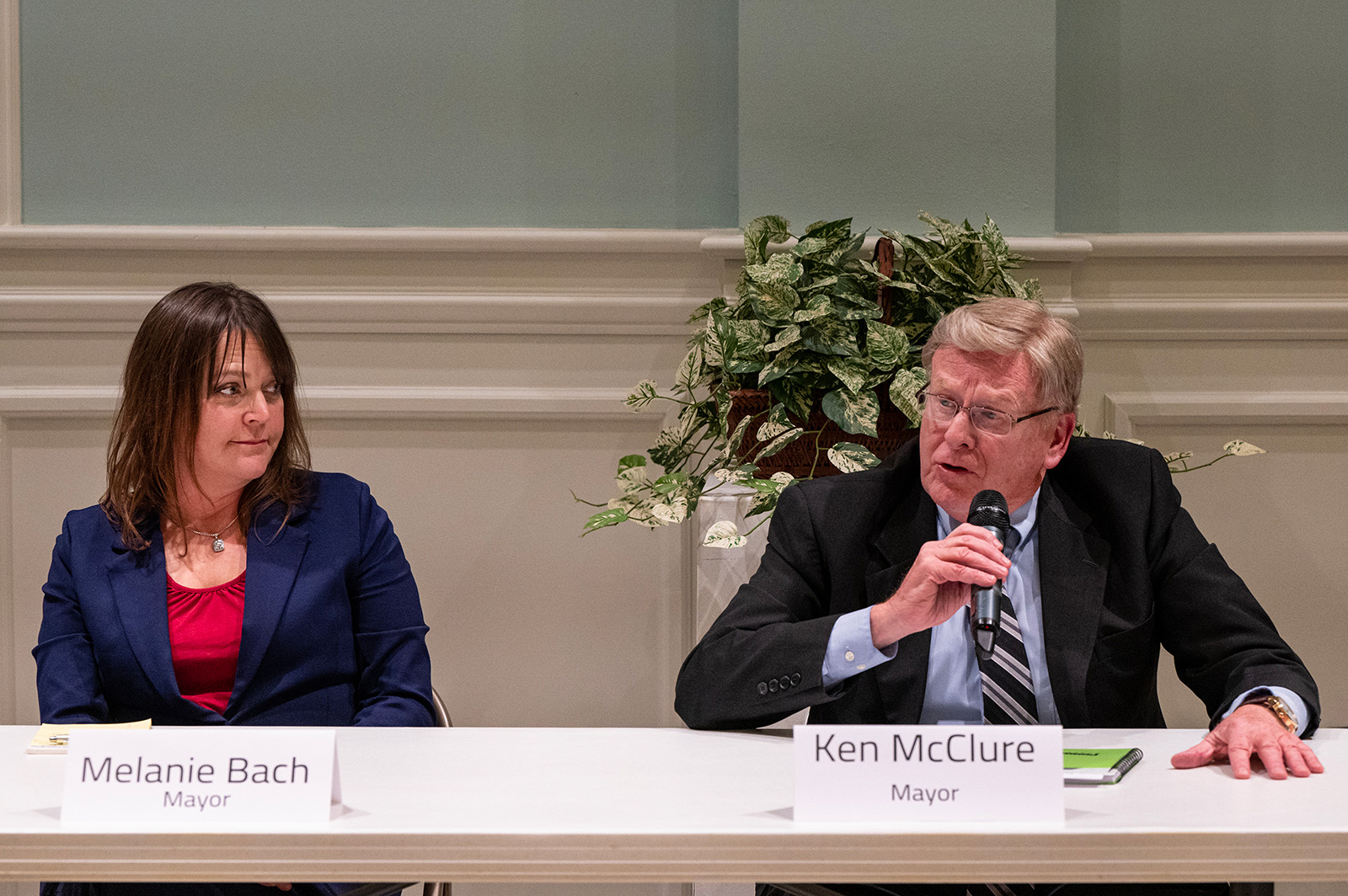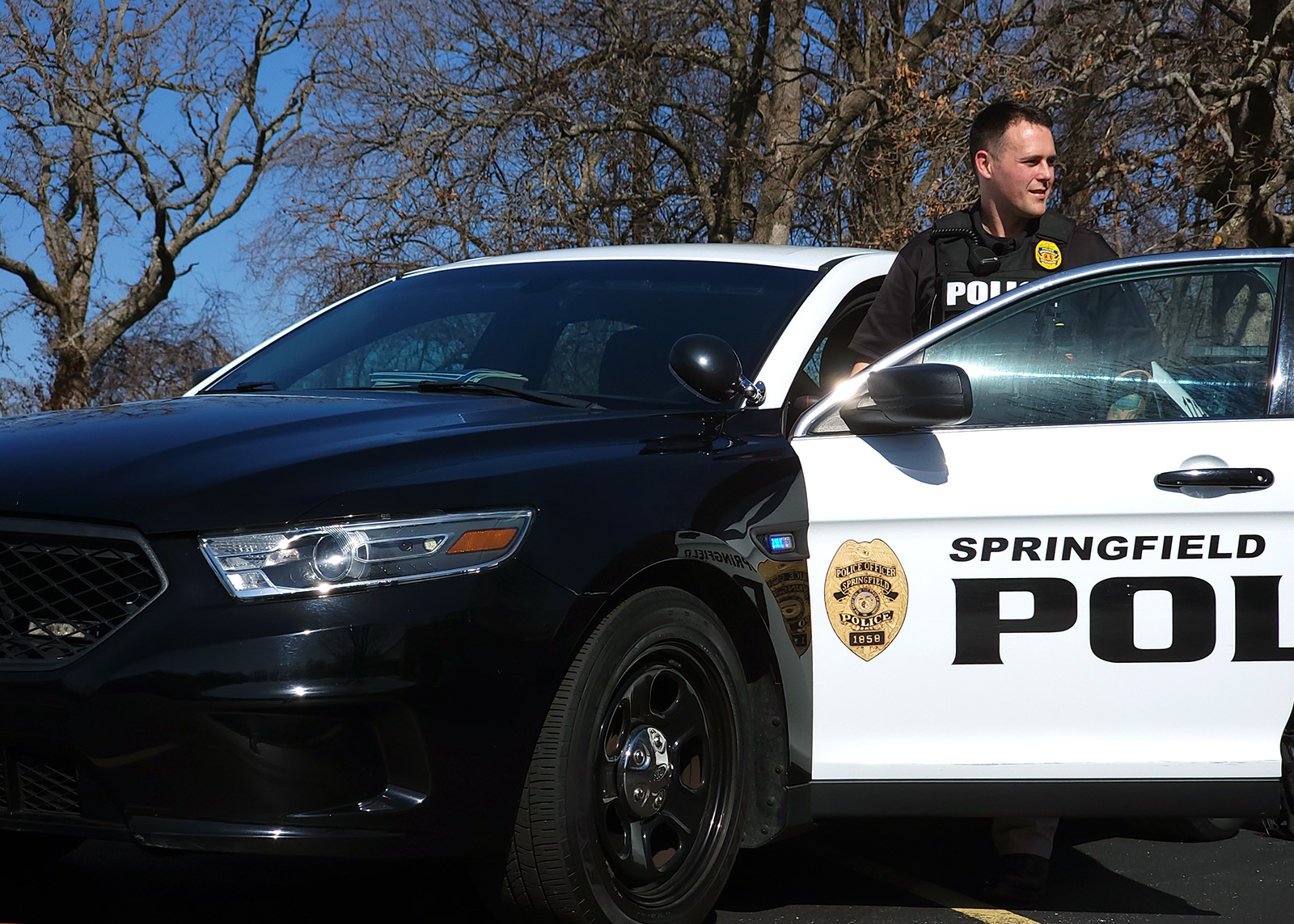VOTING GUIDE |
Part of a series of in-depth reports on key issues facing the city of Springfield and on candidates seeking city positions in the April 4 election.
The personnel who make up the Springfield City Council will change in April, just as Springfield is likely to grow, develop and change over the next four years.
April 4, Springfield voters will elect two people to general council seats. Bruce Adib-Yazdi squares off with Derek Lee for General Seat D, and Jeremy Dean faces Callie Carroll for General Seat C. Southwest Springfield voters will also choose a replacement for the retiring Mike Schilling, as retired police officer David Nokes takes on urban planner Brandon Jenson to represent Zone 3.
Each candidate sat for one-on-one interviews with the Hauxeda to discuss development, growth and Springfield's future under the Forward SGF 20-year comprehensive plan.
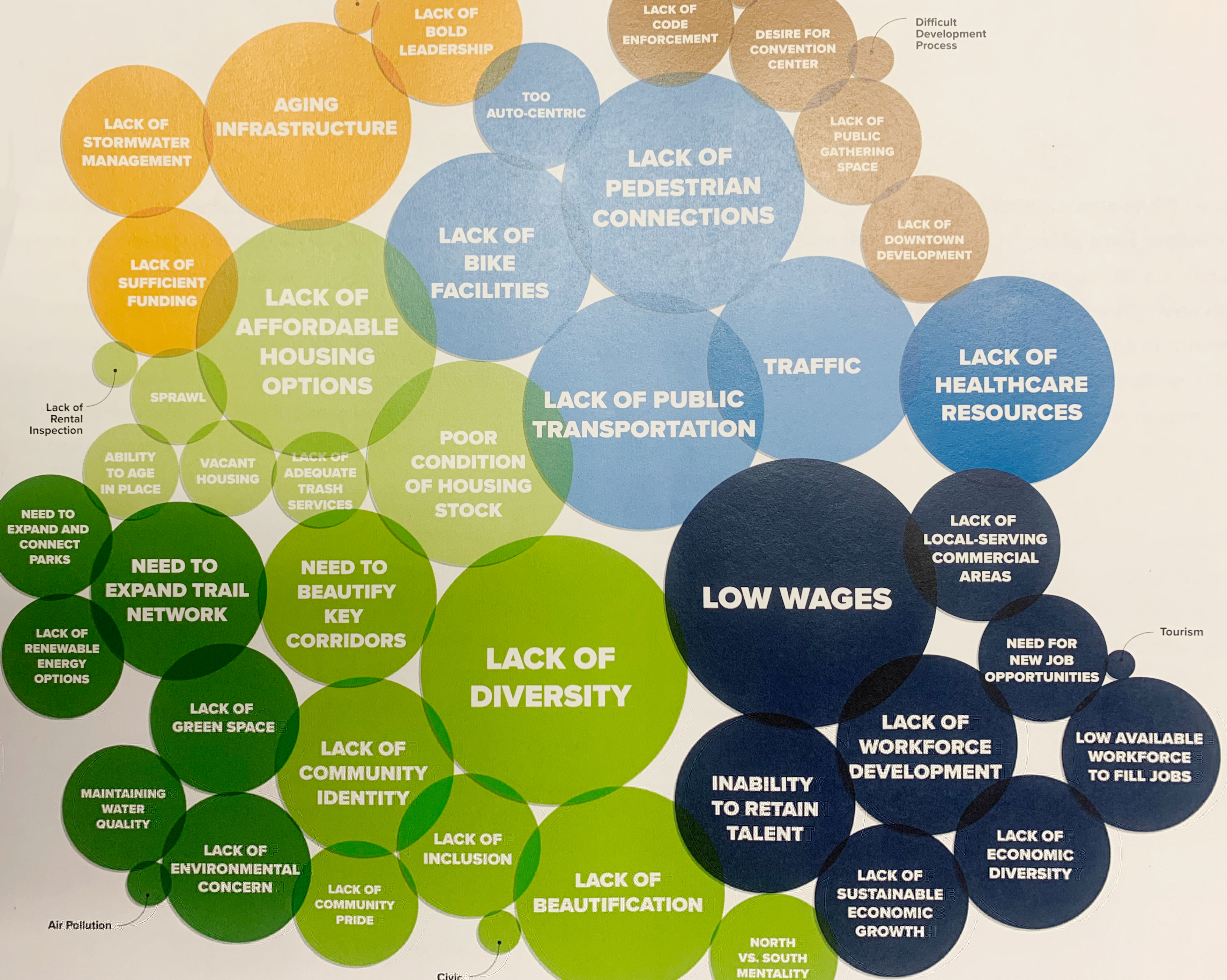
Forward SGF is vast. It examines current conditions across Springfield, a set of guiding principles to use across the city, and then specific ideas for certain neighborhoods. Growth and development guidelines are woven into ideas for parks and trails, public health, historic preservation, arts and culture and plans tailored to specific areas, like downtown Springfield or Commercial Street.
Forward SGF pushes the idea of developing “complete neighborhoods,” places where people can work, shop and enjoy leisure and recreational activities within walking or biking distance of their home. Mixed-use developments blur the lines between commercial and residential zones. Instead, the local government’s focus turns to the overall quality of construction and development, with less focus on land use.
What the government's exact role is in encouraging the development of complete neighborhoods is a key subject of debate in Springfield's three city council races.
RELATED STORY
Mayoral candidates conflict over how to treat Springfield's growth and development
Challenger Melanie Bach is campaigning on a neighborhoods-first focus, while incumbent Ken McClure advocates for regulation and rethinking development within the confines of the Forward SGF 20-year comprehensive plan.
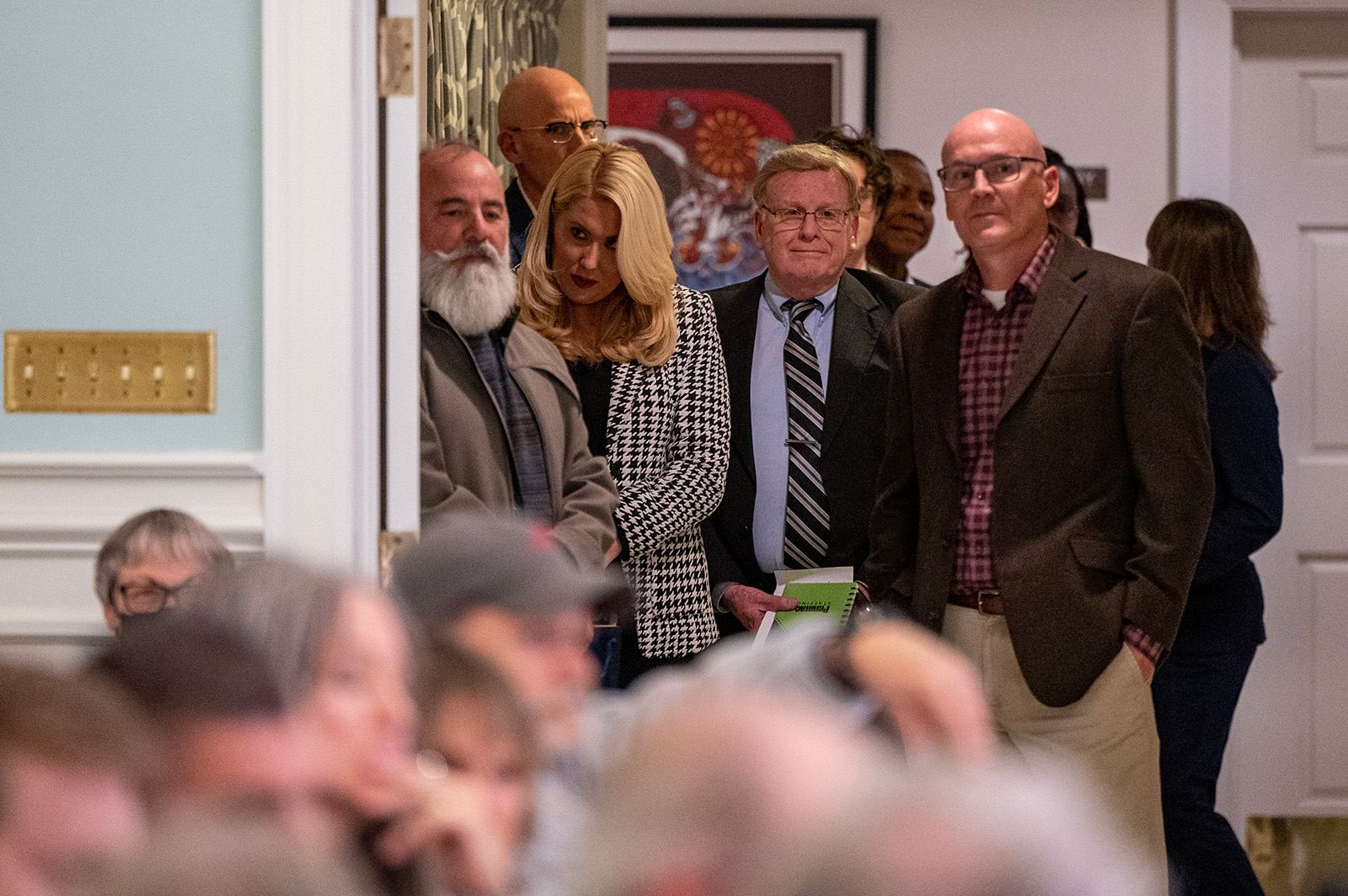
General D: Bruce Adib-Yazdi vs. Derek Lee (replacing Richard Ollis)
Bruce Adib-Yazdi
Occupation: Architect, Vecino Group
Why he’s running: “I can see what we can be if we can just get out of our own way and think about, as an architect, what’s our vision for what we want to be 20 years from now?” Adib-Yazdi said.
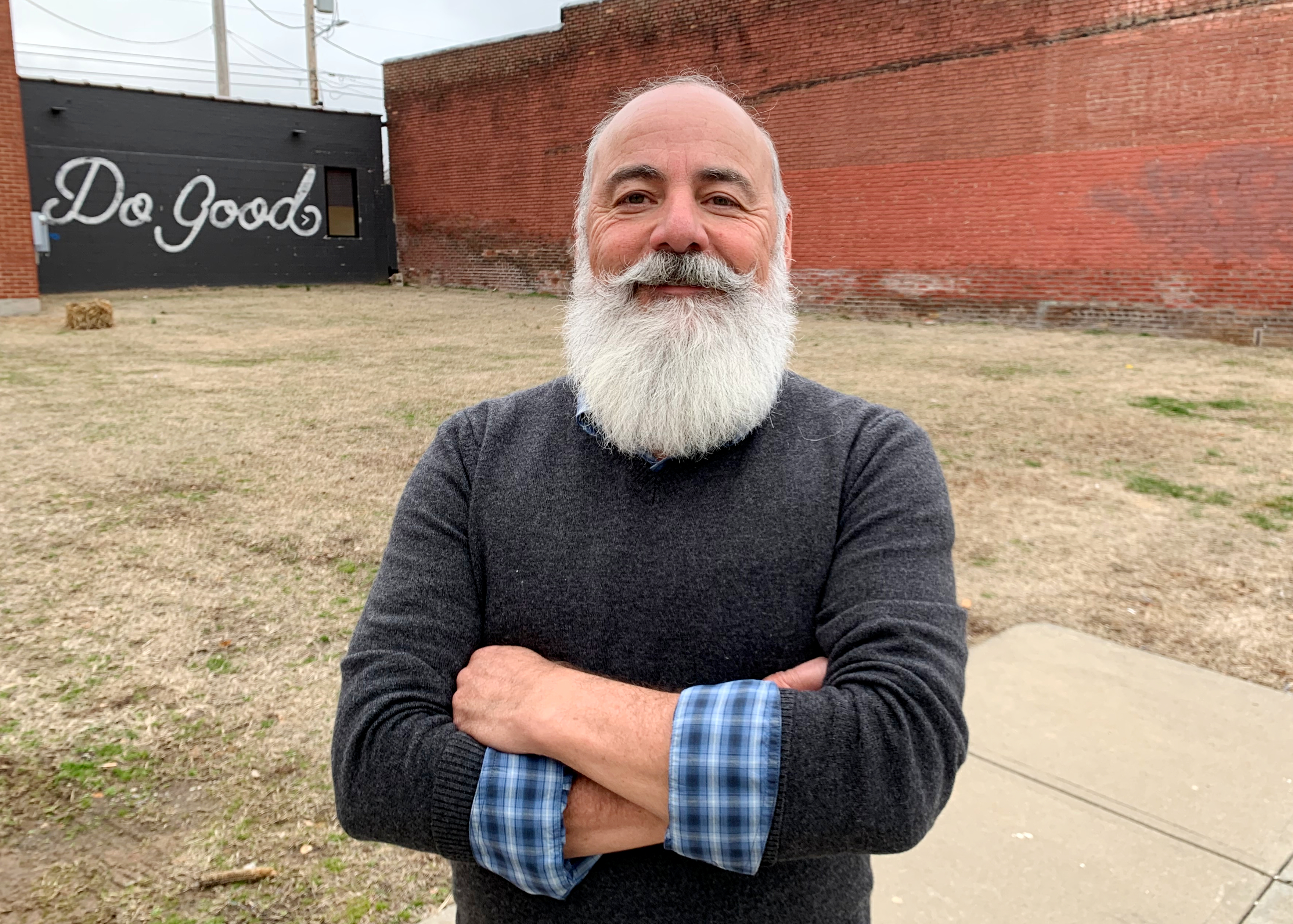
In 2013, Adib-Yazdi went to work for the Vecino Group, which has an office on Commercial Street.
“I wanted to transition from the architecture world to the real estate development world,”
Adib-Yazdi said. “I wanted to do historic rehabs, adaptive reuse, and create higher density and diversity of housing in communities and strengthen those communities as a result of that work.”
His work for Vecino Group gave Adib-Yazdi some firsthand insight into project planning and development.
“Besides the technical expertise, I’ve worked in states across the country and many, many dozens of cities,” Adib-Yazdi said. “I’ve seen how other cities handle lots of different things, so I’ve got some breadth of experience in those areas that I could bring, and kind of compare and contrast.”
Adib-Yazdi said he views Forward SGF as a list of goals to be accomplished, and that it’s up to the city government to figure out the logistics of carrying out the plan and meeting the goals.
“I think the city’s role is understanding where we came from, how we got here, and then taking a global view of all our neighborhoods,” Adib-Yazdi said.
After reviewing Forward SGF, Adib-Yazdi said he is most excited about the potential development of the Lake Springfield area, and the repurposing of the James River Power Station. Adib-Yazdi sits on the Downtown CID Board of Directors, and so he is also excited about the elements of Forward SGF that relate to downtown. As part of his job, he’s been part of renovating several buildings in downtown Springfield. He liked that the plan pointed to specific property as a site for growth or redevelopment, but thought disclosing specific examples of development that could occur on those sites was too much and could discourage architects.
“I feel like the catalyst sites that were selected in the downtown plan were correct, but they went a little too far in showing specific designs and massing models,” Adib-Yazdi said.
Adib-Yazdi said he also wanted to see catalyst sites for redevelopment identified in other parts of Springfield, not just downtown.
About 60 percent of the City of Springfield’s budget comes from sales tax revenue, and so Adib-Yazdi said he sees the wisdom in attracting large retail developments, like Costco, HyVee and Buc-ee’s.

“They bring jobs, they bring sales tax, I 100-percent understand that’s got to happen,” Adib-Yazdi said.
“However, one of my championing roles as a councilperson is going to be, ‘Yes, we have to have that, but we can’t do it to the detriment of neighborhoods.' I’ve seen recently enough detriment to neighborhoods on development projects that could have been avoided.”
The solution, he said, is for developers to hold meaningful conversations with neighboring property owners before they meet with any city government officials about property development or a building project. Adib-Yazdi said “developer” can sometimes become a pejorative or off-putting word, and people who oppose development projects can also be looked down upon.
“The people coming out against projects get named wackadoos, because that’s what they get named and I think that’s wrong,” Adib-Yazdi said. “Smart growth patterns dictate collaboration between development and neighborhoods, period.”
Adib-Yazdi believes the city has a role to facilitate collaboration and occasionally mediate conflicts. He also believes the city government has to hold developers accountable if negative conditions arise as a result of a project.
Derek Lee
Occupation: Civil engineer, Lee Engineering
Why he’s running: “I have always been involved in service, and so when my kids were little we did everything from foster care to working through our church,” Lee said. “Servant leadership is something that I’ve always done.”
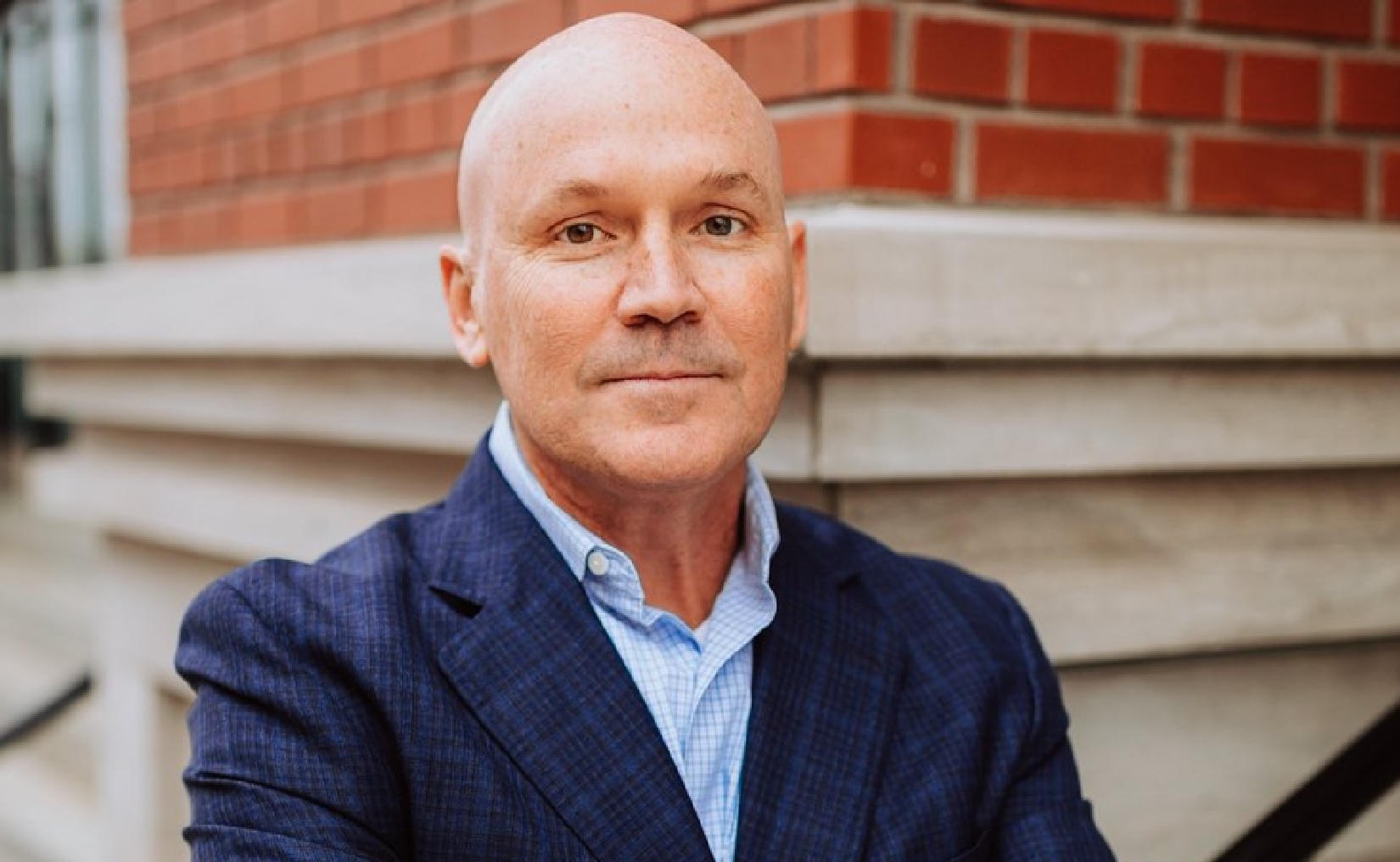
Derek Lee has owned and operated Lee Engineering for 18 years. He worked for a private firm before that, and worked for the City of Springfield for two years.
“Every week somebody calls me, a small business owner will call me and say, ‘Hey, I want to expand my parking lot, I want to add on to my building, I want to add a new use, I want to build a building, can you help me do that?’ and then I try to get those projects through all the red tape at the City of Springfield,” Lee said.
Lee’s work in development is almost exclusively in design. He said he works closely with many of Springfield’s architects.
“I thought, ‘You know,’ there’s a lot of ways that I can serve God and serve my community that are in an area that I know something about,” Lee said. “I want to make a difference. Redevelopment is a real focus of mine, and I just want to — I have a desire to bring people together.”
Like his opponent, Adib-Yazdi, Lee sees himself as a capable mediator in development disputes.
“The vast majority of the things that I do, we find consensus very quickly where they’re not controversial,” Lee said. “I have spent a lot of time doing that, bringing folks together, neighborhoods and developments together.”
Professionally, Lee has worked with developers to do design work at Farmer’s Park, Chesterfield Village and Republic’s Iron Grain District. They’re all mixed-use developments, where a building may have retail, office and residential spaces in the same footprint.
“Those are places that are more urban, but they’re also fun destinations that people want to live there, want to go there, where they can live, work and grab a coffee all at the same place,” Lee said. “I want to make it easier for that kind of stuff.”
If elected, Lee said he wants to be on the committee in charge of rewriting codes that govern property redevelopment.
“Our codes are written toward greenfield development and that’s not what we have in Springfield, and it’s bad for everything,” Lee said. “I believe the role of government needs to be met, meaning I think the property owner needs to figure out what they want to do with their land.”
Lee relayed experiences he had proposing developments in three separate subdivision cases, in which one went forward and two were scrapped during the design phases.
“If you turn in a subdivision, the first thing [City of Springfield employees] do is they take your driveway, they take the land in front of your property for right of way, they make you build sidewalks, even if you have sewer right now they want you to put a sewer main in,” Lee said.
He pointed to the policies in the Springfield Department of Planning and Development hindering the housing additions.

“They paid $130,000 to meet the city’s requirements,” Lee said. “They weren’t building a new building, they weren’t asking for different uses, they just wanted a simple subdivision and it cost $130,000 in the public improvement side of things.”
A similar subdivision in Ozark, Lee said, cost the developer $350 to meet the same requirements.
“What we’re doing right with our redevelopment code is we’re just sending people to other communities and we’re just saying, ‘Develop there,’” Lee said. “Regulations are good. We need them, and I believe in them; I just think that we have gone too far.”
General C: Jeremy Dean vs. Callie Carroll (replacing Andrew Lear)
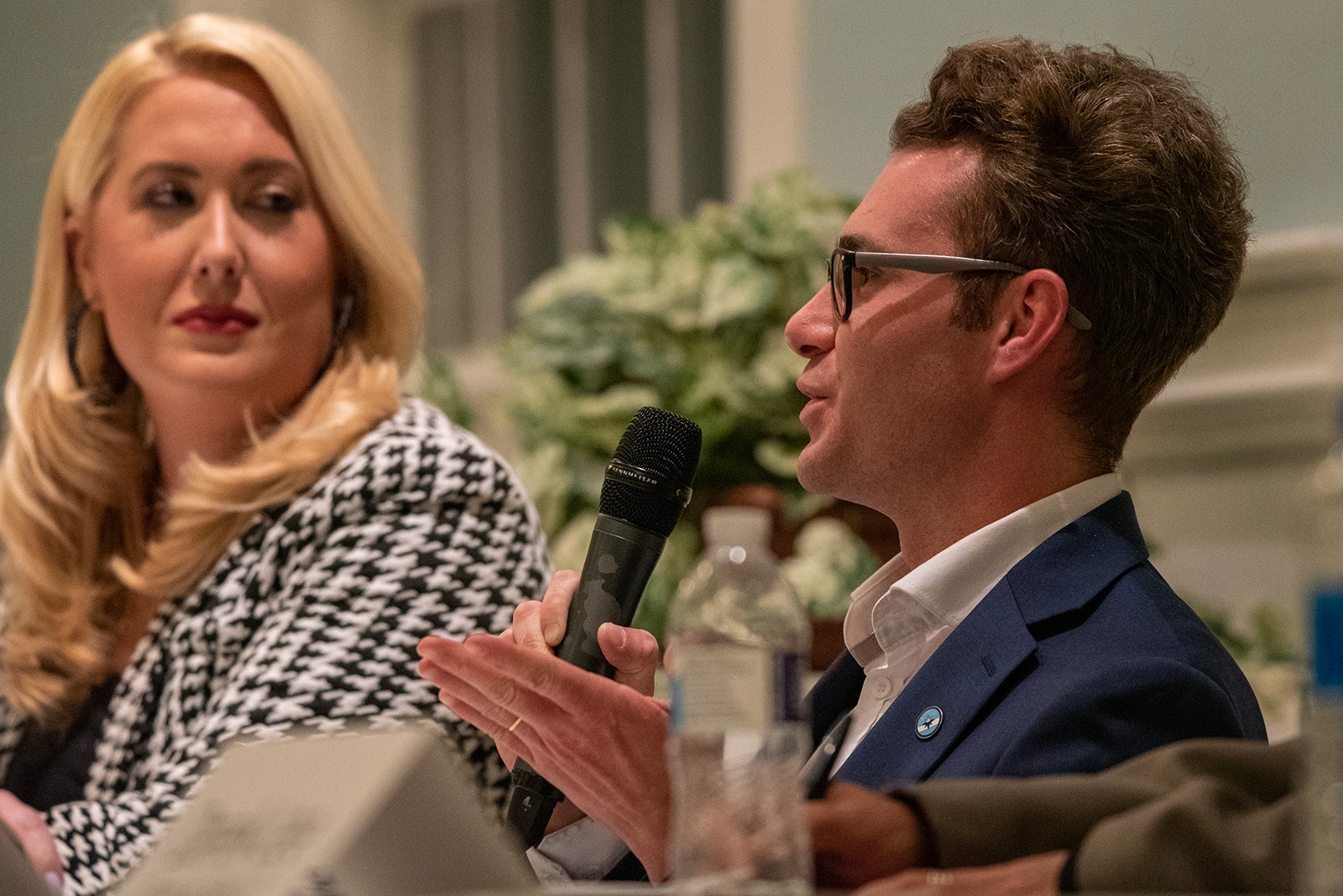
Jeremy Dean
Occupation: Office coordinator in an OB/GYN clinic at CoxHealth
Why he’s running: “I saw myself representing the average Springfieldian and hadn’t seen that on our actual city council by most of our representatives for a while,” Dean said. “This race would have gone unopposed had I not run for it, so that was one of the reasons that I did it this year.”
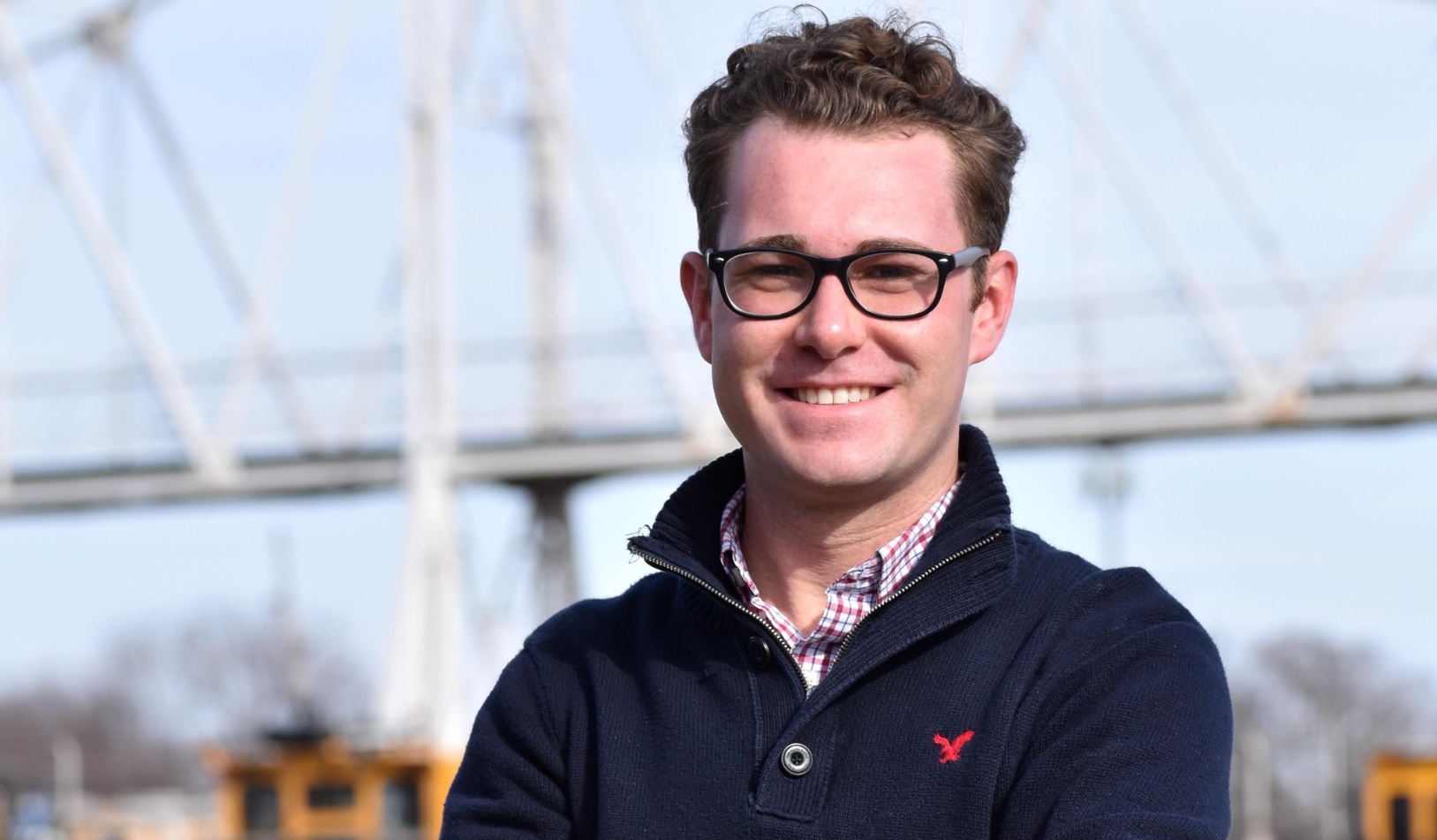
Dean said he has been campaigning door-to-door in neighborhoods like Phelps Grove and University Heights, where neighborhood groups have organized in opposition to developments. Dean said their input has gone beyond “not in my backyard” and is more nuanced.
“They understand that development is important for Springfield, and they understand that we can’t grow unless we’re actively, physically growing with development,” Dean said. “The main thing that I hear from them is they feel like they’re not listened to when it comes to their specific neighborhoods.”
In University Heights, neighbors have turned out in opposition to The Heights, a proposed development on the northwest corner of the Sunshine Street/National Avenue intersection.
“That specific lot has been a residential lot for a long time. We all recognize that development has happened around that corner; traffic is getting heavier. I think that what Springfield would really like to see on that specific corner is more traffic updates, maybe more greenspace on that corner since that’s a park-like neighborhood,” Dean said.
Dean believes mixed-use development is suited for certain parts of Springfield, but his take on the locations is different from other candidates.
“Most of the time, I think that those areas are farther on the outskirts of the city limits, so not necessarily in the city center,” Dean said.
Dean hopes the City Council and City of Springfield staffers will conduct further examination of mixed-use zoning and how it will fit into specific neighborhoods.
“Although we did a lot of work and research to make the Forward SGF plan, it’s important that whenever we implement those actual plans, we are talking to the neighbors a little bit more,” Dean said.
After reading Forward SGF, Dean said he likes the guidance it provides to future city government officials. He also appreciates how accessible the plan is to the public.

“I like the fact that Springfield puts plans into place, so it’s easy for citizens to look up Forward SGF and know these are our priorities for the next 10-plus years, depending on how long we set it for,” Dean said.
“It keeps its eye on the quality of place, so we focus a lot on that and I think that’s important.”
Springfield needs “good development,” Dean said, and that’s why he is striving to take a middle-of-the-road approach to development projects.
“I think that I fall in the middle line when it comes to development,” Dean said. “I don’t want people to think that I’m a full pro-development person that’s just development at all costs, but I’m also not against development at all costs.”
When it comes to Springfield city government projects, Dean wants to enact a local preference ordinance that will favor bids from local companies. The City Council debated local preference legislation in 2016.
“Springfield city government should be focused on utilizing local businesses before we start giving those contracts out to other people,” Dean said. “A lot of people will say that’s going to raise prices and stuff like that, but there’s countless studies where we can see that with local preference legislation, we actually reduce cost because it’s more efficient.”
Callie Carroll
Occupation: Vice president, business development and shareholder relations officer at Old Missouri Bank
Why she’s running: “Communication and relationship building — if I stood on two platforms of what I bring to the table, that’s it,” Carroll said. “I am an uplifting, optimistic person, and I think even in the climate of now, there are so many things to be proud about in Springfield. We need to put those at the front.”
Carroll believes some of the disputes involving developers, property owners, City Council members and planning and zoning commissioners can be solved through clear communication.
“I don’t like ‘Us vs. Them,’” Carroll said. “I do not like that at all. Until we get rid of that ‘Us vs. Them’ mentality, we’re not getting a lot accomplished. We have got to communicate and work together.”
“I serve to build bridges, not burn them, and I think that is one area that I can help in — just communication and relationship building,” Carroll said.
Carroll said it’s important for neighborhoods to hold on to the qualities that make them stand out from the rest.
“Our neighborhoods are the cornerstones of this community,” Carroll said. “That’s what makes us so unique, the unique character that each neighborhood has is such an amazing characteristic of Springfield.”
However, that doesn’t mean Carroll opposes change through new developments and buildings.
“A city without development is a dying city,” Carroll said. “We have to have development to keep up quality of place, but I am pro smart-development. I think there are a lot of places in Springfield that are vacant old businesses that would be awesome, thriving new businesses.”
“I hate that neighborhoods feel that they’re unheard right now,” Carroll said. “I don’t want that to mean, ‘We have to stop all development,’ because we can’t have that. We need to stop the yelling and have people at the table who are going to speak in a professional manner and bring their point to the table.”
In University Heights, Carroll wants to learn more about why people oppose what developer Ralph Duda and the BK&M group have proposed with The Heights.
“I genuinely want to know what their specific concerns are,” Carroll said. “‘They’re taking our [houses, neighborhoods, identity] — that’s not, no. I don’t want screaming. I want to know what specific concerns are, so that maybe there are specific concerns that can be made.”
Carroll would like to use her training in journalism and in communications to ask questions, guide conversations and settle disputes.
“I’m a rational person who will listen and learn, because I don’t have all the answers, and anyone who claims to have all the answers — bless it,” Carroll said. “We can find something that’s common ground, and that’s what I think that we’re lacking. Not to romanticize a City Council meeting, but when you really think about it, how cool is that we all come from such different backgrounds, and we’re all sitting in this room?”

Carroll relayed a personal experience from her own Springfield neighborhood, where neighbors met with the developer ahead of a proposal going through the permitting process. Carroll said she accepted from the onset that they wouldn’t be completely pleased, but they did see some of their biggest concerns addressed.
“As an overall neighborhood, we were like, ‘This is happening, so what are some of the things that will make it better for us?’ and we came to a consensus, and I don’t hear any complaints, and this development went in,” Carroll said.
Across Springfield, Carroll suggested communication could be improved by having the Department of Planning and Development give regular reports to the City Council on development projects occurring in Springfield, in a similar fashion to the way Police Chief Paul Williams gives monthly reports to the Council on police activity and crime reporting.
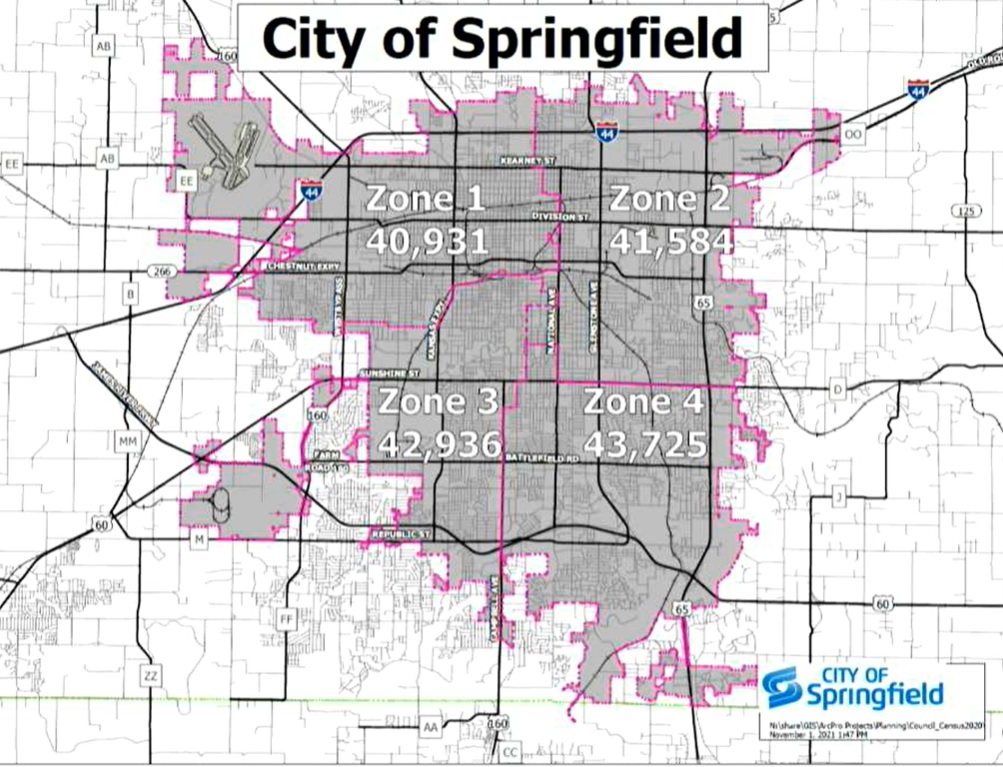
Zone 3: Brandon Jenson vs. David Nokes (southwest Springfield, replacing Mike Schilling)
Brandon Jenson
Occupation: Community manager, Missouri Community Development Block Grant program
Why he’s running: “I recognized that my ability to affect change and ensure the change is reflective of what the community says they want is really only possible at the highest level, so at our elected official level,” Jenson said. “My parents always said if you’ve got the skills and the passion to do a job, then that’s the time to do it.”
Jenson has bachelor's degrees in French and in community and regional planning, one of which he jokes is “so helpful” for living in southwest Missouri. He interned for more than a year with the Southwest Missouri Council of Governments through Missouri State University, where his job was to help communities plan for and prepare for growth. He was instrumental in writing a comprehensive plan for Willard. His experiences, he said, help him make decisions to maximize benefit for the most people.
“All of my experience has taught me how to be a mediator, how to sit down with both sides of an issue, take in all of the information that they have to share, and then make as sound of a decision as possible,” Jenson said.
Jenson lived in the Denver area for two years after graduating, but returned to Springfield to go back to work for SMCOG on a full-time basis.
“I moved to Denver for a bit and saw what they did well and some of the mistakes that they made, and I see the city of Springfield doing some of those same things, both on the positive and potentially harmful side,” Jenson said.
Another change occurred in 2021. He now works for the State of Missouri managing the Missouri Community Development Block Grant program, “that essentially provides grants to impoverished rural communities helping them build out infrastructure and things like daycares and fire stations.”
“I’ve been able to see that the functions of a city are only as good as what its leaders empower it to be,” Jenson said. “The city of Springfield is on the cusp of some really great things with some of the stuff that we’re doing.”
Forward SGF, and the directives found in it, spurred Jenson’s decision to run for elected office. Carrying out those directives, he said, will require “bold leadership.”

“It really depends on how it’s implemented, and that was one thing that really drove me to consider running for City Council,” Jenson said.
“The approach to looking at the city as a series of components and recognizing that there are different needs depending on where you are in the city, and different strategies to address those needs, I think that’s what stood out the most to me.”
Jenson said he generally supports the recommendations for mixed-use developments found in the pages of Forward SGF.
“I think mixed-use development, when done properly, can be a really good way to revitalize neighborhoods, allow for additional economic opportunities while also providing additional housing units within a city,” Jenson said.
However, Jenson advocates for close attention to commercial use. Jenson said it is important to make sure businesses that go into predominantly residential neighborhoods will primarily serve the people who live in the same neighborhood.
“Whereas if they’re located along a more commercial corridor, than it would probably make more sense, depending on the specific location, to incorporate some higher uses while still mitigating the impacts to adjacent property owners,” Jenson said.
The Springfield Neighborhood Advisory Council has recommended more funding for neighborhood planning. As the president of the West Central Neighborhood Alliance, Jenson said he put his professional planning experience to work with a personal touch.
“The approach to looking at the city as a series of components and recognizing that there are different needs depending on where you are in the city, and different strategies to address those needs, I think that’s what stood out the most to me.”
David Nokes
Occupation: Retired police officer
Why he’s running: “Citizens supported me for 28 years in Springfield, being an officer, this is a time to pay back,” Nokes said. “It’s a tough job. I’m just excited to be back involved in a leadership position where I can make a difference. It sounds corny, but I can make a difference in this city.”
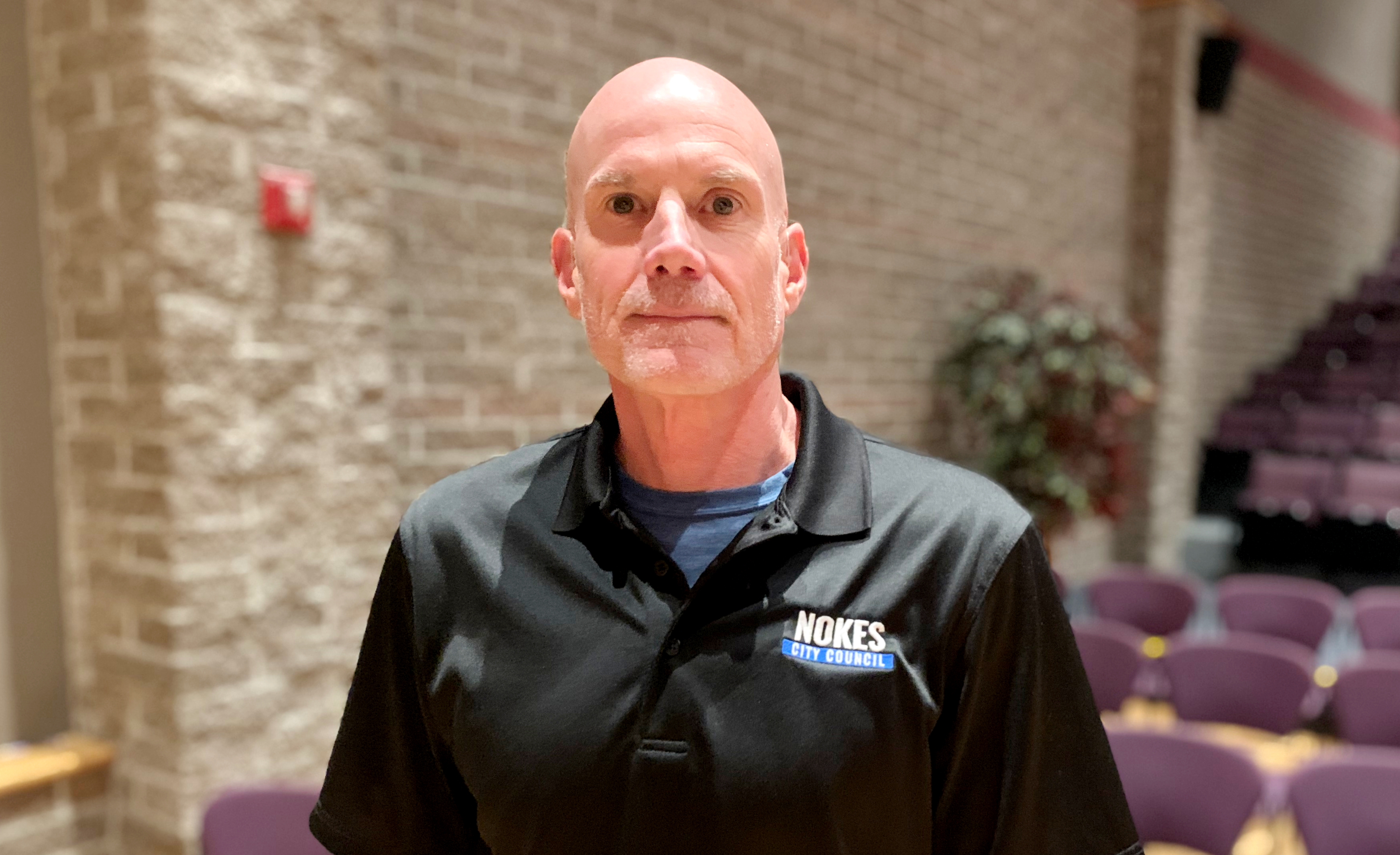
Nokes is a retired major from the Springfield Police Department who later oversaw policing and the Springfield-Branson National Airport and worked seven years as a probation and parole officer for the Missouri Department of Corrections. Through the lens of conflict resolution and law enforcement, Nokes examined recent disputes in University Heights concerning the BK&M property at the corner of National and Sunshine. Nokes said there should be communication between the city and neighborhood associations before a developer buys a piece of property, designs and proposes a project.
“Then you’ve got a developer that’s invested in the property, but there’s been no work on the front end, and now there’s a confrontation between the developer and the residents of that neighborhood,” Nokes said.
Nokes gave an example of a case that involved another candidate for the City Council, Derek Lee. The Ridge at Ward Branch is a gated retirement community in south Springfield off West El Camino Alto Drive. Lee Engineering, Nokes said, did well to meet with residents of the neighboring Quail Creek subdivision and hear their concerns.
Nokes believes some of the people skills he picked up in decades of law enforcement work would make him a good mediator in disputes between developers and neighboring property owners.
“Mainly they are de-escalation skills,” Nokes said. “How do you talk to people and how do you get people to calm down?”
Nokes gave another example of Kansas Expressway and Sunshine Street as a place where some proactive work could be done to prepare the area for more development.
“You kind of look down that corridor on Sunshine and so it’s in transition from being residential many years ago, it’s transitioning to more of a commercial hub,” Nokes said. “It borders a neighborhood, so yeah, neighbors are concerned with what’s going to be going in there. I would be too.”
Nokes, who lives in Chesterfield Village, a planned unit development, favors the development of what he called “low-intensity commercial hubs,” within neighborhoods.
“Whether it’s National and Sunshine, Sunshine and Jefferson, or even Galloway Village, it borders right to that neighborhood, to that already-developed, established neighborhood,” Nokes said. “You have to be proactive, identify those areas that are in transition, get out in front of that and start working with your experts at the city — you have a city staff — as part of the ingredients that deescalate the situation.”

A standout item from Forward SGF, Nokes said, is an idea to brand Springfield as the base for outdoor recreation in Southwest Missouri.
“Springfield is unique and we’re outdoors, we’re the Ozarks, and we want to be the ‘base camp of the Ozarks,’” Nokes said. “I love to kayak, and so that all makes sense. That sticks out for me, I like that. Springfield should be known for that.”
RELATED IN-DEPTH STORY
Is Springfield safe? Mayoral and City Council candidates weigh in on public safety needs
Three positions on the Springfield City Council and the mayor's office are at stake in the municipal elections April 4, 2023. One of the Springfield City Council’s responsibilities is to provide oversight to the people tasked with making Springfield a safer place to live and work.
To vote April 4, 2023
Registration ended March 8
Absentee voting began Feb. 21
Information on absentee voting, election regulations and polling locations
Greene County Clerk-issued sample ballot


